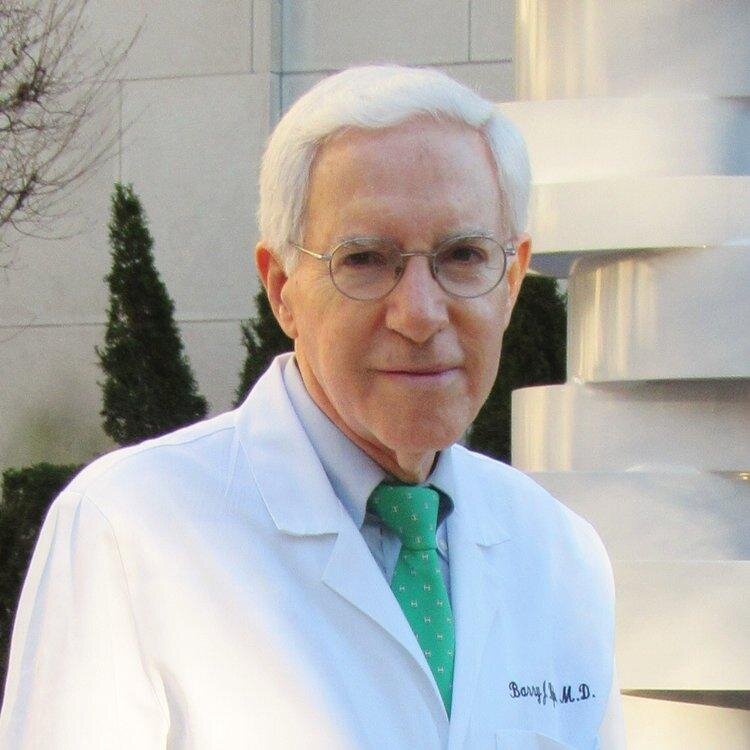Graves' Disease Specialist NYC
One of Dr. Klyde’s specialties is Graves Disease, which involves the thyroid. He works with patients all over the NYC and Tri-State area in helping them manage this condition. If you’re looking for a board-certified, caring, and awarded doctor, please give us a call today to book an appointment.
Graves Disease and Hyperthyroidism
General
Graves disease is the most frequent form of hyperthyroidism. Other causes include an autonomously functioning nodule within a multinodular goiter causing a “hot” nodule, or thyroid inflammation with temporary release of thyroid hormones into the circulation. Graves disease and hot nodules will get progressively worse without treatment, while thyroid inflammation will return to normal without intervention. Graves disease is an autoimmune illness in which antibodies cause the thyroid to overproduce T4 and T3. It is much less frequent than the other autoimmune thyroid illness, Hashimotos disease, in which different antibodies interfere with thyroid function. Both autoimmune thyroid illnesses can be seen in the same families, in even in the same individual at different times.
Symptoms
Symptoms of hyperthyroidism include caffeine-like effects such as tremor, palpitations, and disturbed sleep. There is often weight loss, including loss of muscle mass, heat intolerance with sweats, and increased anxiety with mood changes. Symptoms of hyperthyroidism can be mistaken for psychiatric illness such as bipolar illness or anxiety disorder, just as hypothyroidism with lethargy, fatigue, and increased weight can be mistaken for depression. Additional symptoms of hyperthyroidism include oily skin, fine scalp hair with breakage, separation of fingernails, and frequent but formed bowel movements. Graves disease antibodies can affect the extra-occular muscles and cause bulging eyes, or exopthalmos. Other forms of hyperthyroidism such as a hot nodule do not do this because there are not elevated Graves antibodies in the blood.
Diagnosis
Diagnosis of hyperthyroidism is made by hearing about the typical symptoms, and finding rapid heartbeat, tremor, sweats, enlarged thyroid or goiter, and skin, nail and hair changes on exam. Graves disease would cause a diffusely enlarged goiter, while a hot nodule would be suggested by finding an irregularly enlarged nodular goiter on exam. Observation of bulging eyes, or exophthalmos, would indicate that the hyperthyroidism is likely from Graves disease rather than a hot nodule. Laboratory tests would show elevation of the thyroid hormones T4 and T3, with suppression of TSH. If the cause is Graves disease then the antibodies TSI and TRAB may be elevated, but they may be seemingly normal even if Graves disease is the cause of hyperthyroidism.
Treatment
The choice of treatment depends on different factors. The overactive gland can be surgically removed, it can be destroyed with radioactive iodine, or suppressed with anti-thyroid medication. Anti-thyroid drugs used for a year may produce a cure in up to half of patients with Graves disease, but may have the side effects of rash, gastrointestinal symptoms, liver disease, or rarely suppress production of white blood cells in the bone marrow and lead to life-threatening infection. Anti-thyroid drugs might only produce temporary benefit in hot nodules so are not appropriate in that circumstance. Radioactive iodine will eliminate hyperthyroidism in both Graves disease and hot nodules, but with a high chance of causing the opposite problem, hypothyroidism, with need for lifelong thyroid medication such as Synthroid. Surgery is used in special circumstances, such as in pregnancy where radioactive iodine cannot be given because of an effect on the fetus, or when it is important to quickly correct the thyroid hormone excess, as in serious heart disease, or if there is severe exophthalmos. It is important to use experience and good clinical judgement to balance benefit and risk to decide on the best therapy.


